Sarai Mannolini-Winwood
Sarai is a free-lance literature enthusiast who currently works as an academic. An avid horror and fantasy reader she is an advocate for its cultural importance.
Columnist I
- Plebian Penman
- Common Writer
- Aristocratic Author
- Lurker
- Pssst
- Hand Raiser
- Vocal
- Outspoken
- Extrovert
- Sharp-Eyed Citizen
- Town Watch
- Detective Deskman
- Penman Patrol
- Actor
- Well Read
- Punctuator
- Article of the Month
- ?
- Articles
15 - Featured
15 - Comments
204
- Ext. Comments
172 - Processed
78 - Revisions
74
- Topics
60 - Topics Taken
8 - Notes
105
- Topics Proc.
336 - Topics Rev.
37
- Points
8283 - Rank
7 - Score
4752
Latest Articles
Latest Topics
Is The Peripheral a gateway to Hard Sci-Fi?The Peripheral (2022) is a recent sci-fi TV drama series based on the book by the same name by William Gibson. It was developed by Westworld creators and has a similar aesthetic. The series is set roughly a decade in the future with a focus on how technology can change society (similar themes to Westworld), but primarily follows the creation of an alternate reality that a VR gamer gains access to. The main narrative begins in the Blue Ridge mountains in the USA where Flynn and her brother Burton accept an opportunity to beta test an advanced VR game. What is interesting about The Peripheral is that it is Hard Sci-Fi: it includes alternate realities, consequences of technology, dystopian societal states, VR, body modifications and nanotechnology. Throughout the show the technology both in the near future reality in USA and the futuristic capital of London is based in scientific developments that are a mere step from our present. The extrapolations are linked to scientific discovery and justified well within the scope of the progression in the series. By beginning in a more relatable near future with the slow introduction of different technology, the viewer is lead smoothly and easily into accepting such technology as a reality within the context of this series. The careful handling of the plotting allows even the most mainstream viewers to be eased into what is basically Hard Sci-Fi. This is a very brief overview of a complicated progression through a series that makes every hour episode feel like a movie with the density of events and character development. It would be interesting to map this more fully, and explore the actual progression of how and in what order different technology is introduced and explored to help scaffold a viewer’s experience of being eased into Hard Sci-Fi. It is also an interesting series to look at how the handling of futuristic Sci-Fi can be managed without becoming disjointed or pretentious (for instance a comparison to MoonHaven would be interesting to explore). Finally, the series eludes quite strongly to the consequences of our current state of affairs with the Jackpot and an analysis of the implications of this to where we are currently located would be interesting to explore the extrapolation of a near dystopic future of our actual world. |
Dungeons and Dragons OGL UpsetThe RPG controversy of the year was Wizards of the Coast, a Hasbro subsidiary, draft Open Game License changes sent fans and game developers into an uproar. The OGL was a default license established in 2000 that allowed fans to use portions of the Dungeons and Dragons property in their own work. This was framed in similar ways to open software licensing in that it could be used as a foundation to create independent works as long as it was using the specific System Reference Document in doing so. This allowed gamers to develop their own works and even to sell them. The most commercialised version of this was the work of Kobold Press and Green Ronin that developed independent games using the SRD as a base. This has always been a successful space for creative engagement with a beloved property. On January 4th 2023 a new OGL 1.1 was to be released but an early leak of this content exploded into the zeitgeist with very concerning changes including WOTC ability to claim royalties from sold works and complete control over the content produced. The backlash was huge and fans and content creators both began to rally online and establish a response to the changes. This response included unsubscribing from WOTC’s digital toolset and protesting in social media. Further, the largest third party users (whose income was most threatened by the change) announced plans to step away and redevelop their own games. WOTC has retracted its plans but the damage is done. But a number of key questions have begun to be raised: Was this a failure to listen to its fandom? Was this merely a cash grab? Has this action doomed WOTC and its aligned products into the future? Has this been the initiative needed to get more producers developing independent game engines? What does fully open sourced mean financially for game developers? How will this shape the next twenty years of gaming? And, significantly, does this mean D&D is dead? |
The value of friendshipThere is a lot of amazing TV out there to watch at the moment, however, a lot of it is heavy, deep, meaningful and dramatic. There is nothing wrong with this as it explores the experiences of humanity in a meaningful way. But there needs to be a balance of good, low-impact, moral, pleasing shows that are also not just about romance. Whatever happened to the value of friendship in TV? An Australian comedy-drama Rosehaven is a show with a simple premise. A son returns to the small town he grew up in, in Tasmania to help run his mother’s real estate business. His best friend who was going off to her honeymoon is left by her husband. She decides to go join her bestie in Tasmania, and just stays. Although the show includes sub-plots on romance, the dramas of small town, emotional growth, it is primarily about friendship and what that means. [SPOILER] The show ends with a faux wedding with the town wanting them to end up together, but they don’t – they are just good friends. Friendship is a huge part of everyone’s experiences. Too many shows use this framing to drive drama, especially in young adult shows such as Gossip Girl or The OC. When in fact for most people it is the friendships that endure not always the relationships and lovers.
|
Female Warrior ArchetypeIn no way is the female warrior a new archetype, but what is new is the increasing mainstream TV portrayals of faceted versions of such characters. With the changes occurring in the representation of women in TV we are seeing a great up take of new presentations of women in what have been predominantly male roles/positions. Some examples you ask? There are so many more that could be discussed and explored. It is interesting to see the changes to these representations that are able to balance traditional “feminine” characteristics of the characters with traditional representations of masculine warrior traits in a manner the begins to normalise a greater diversity in gender representations. |
Is it strategy or stupidity? Morbius and SonyMorbius is the superhero film released by Sony as part of Sony’s Spider-Man Universe. It grossed 73.4m in the US and Canada and 90m worldwide. At release it finished first at the box office, which is not unusually for any superhero film, but then experienced a drop of 74% to be the second-worst superhero movie behind only an obscure tentpole superhero movie from 1997 called Steel. The critical response to the movie has been overwhelmingly negative with 3.8/10 from Rotten Tomatoes and comments such as "critically bad" from Variety. The negative reception spread quickly across the internet creating an ironic meme, which somehow led to Sony deciding to re-release it to 1,000 theatres on June 3rd, during which it made $310,665. What is most confusing is the manner in which both the fans and Sony have responded to the release. The sour critical reception seems to have bolstered a collective "hate watch" that is generating revenue for Sony. The company, which seems unconcerned by the negative response appears to have taken the influx of internet attention as a positive and decided to re-release the film to cinema. So what happened?
|
How a children's television show band won Australia's national music competition‘The Wiggles’ are an Australian children’s music group that was formed in 1991. Around 1997 they sold a self financed show to Disney Channel Australia and became a hit. They broke into the USA market in 1998 with successful airing of their show and touring. In 2017 they signed a deal with NBC Universal to be available to 58 million American households. To say they are doing well is an understatement. But why, and how, did a children’s band win a national poll? Triple J Hottest 100 has been around in different forms since 1988. In 2022 2.5million votes had been submitted for the selection of this years selection. The selection of music is limited to favourite Australian and alternative music of the previous year. The tipping lead was actual Kid Laroi and Justin Beiber’s collaboration. Although largely a popularity vote it is still considered a great honour to be selected onto the top 100 list. So again, why is a children’s TV show even in the running? For whatever reason The Wiggles were invited to perform on Triple J in ‘Like A Version,’ which is for a band to cover in their own style another’s work. The Wiggles covered Tame Impala’s 2012 song Elephant while also infusing it with a chorus from their song Fruit Salad. That is the song that won. What happened? Well two main thoughts are: it is nostalgia or it was a joke. Both of these are interesting to pursue at a deeper level. If this is about nostalgia is this a response to the pandemic life of the last few years? A reach backwards to a simpler time and a happier world? What is it about nostalgia that drives a response stronger than any other factor? Is there a rise in nostalgia driven popular culture due to the pandemic? I’m not actually sure there has been. Instead most of the discussion about nostalgia was happening five years ago around the endless remake and reboot of film and TV. If it is not nostalgia is it a joke? What is it about Australian culture that drives the desire to use humour in every place? A recent TV show that actively challenges concepts around Indigenous rights and Settlement, ‘Firebite’, uses humour to tackle colonisation. Is humour then more important in Australian popular culture than any other approach? Is this the defining characteristic of Australian popular culture.
|
Mr Big or Aidan? Team Edward or Team Jacob? Angel or Spike? What is it about love triangles that drive fan-fiction?The love triangle is a well established trope. The most common version is for three people to connected through love, decisions and actions that will determine a final pairing of two. There are many versions and alternatives of these tropes, but they are all largely beloved by readers and viewers. What is it about the love triangle that is so appealing? Is it that it provides a voyeuristic pleasure of imagining yourself in the position of the desiree? To be so desired and pursued by not one but two people? Is it just that the level of anticipation is increased as now there are multiple ways to introduce sexual tension in their interactions? Is it simply that it makes good character foils to highlight the protagonist’s own qualities? In fandom the obsession with "shipping" couples is a huge driving point for fan-fiction. Whether it is about the impending wars or the impending threesome, it is also about the distinction of choice. Should Carrie have ended up with Aiden? Should Buffy have just had a threesome with Spike and Angel (the comic series in fact implies she’d have been down with that)? Even beyond the main characters there is a lot of repositioning of characters to end up with others. This has also occurred to great affect in better representations of the LGBTQIA community by showing a variety of love options. But again, why do we get so engaged as fans in these love triangles, and with wanting our preferred match to occur? Love is an universal theme. It is a vital ingredient, whether we are talking romantic or platonic. But viewers love complicated love. Why can’t love be honest and straight forward? Well obviously that would make less of an interesting story for many shows. But is this representation of complicated love healthy? Are love triangles real things? Why is it normalised that it is okay to string along two perfectly decent people because you can’t make a decision or have an honest conversation? The love triangle – an interesting topic to break apart.
|
Biographical truth or the real heart of the story?‘Dickinson’ is the Apple TV series 2019-2021 about American poet Emily Dickinson. The premise (taken from Anreeva & Pelski 2018) is that Dickinson takes place "during Emily Dickinson’s era with a modern sensibility and tone. It takes viewers into the world of Emily, audaciously exploring the constraints of society, gender, and family from the perspective of a budding writer who doesn’t fit in to her own time through her imaginative point of view. Dickinson is Emily’s coming-of-age story – one woman’s fight to get her voice heard." The best word there is audaciously – the series makes direct use of Dickinson’s actual poetry throughout the series to theme the episodes and to add to a story about a complex poet. Biographies on Dickinson indicate she was an isolated, eccentric and (reading between the lines) anxious woman in a period of relatively large gender, race and class oppression. Little of her poetry was actually published through her life, and most information about her is based on her prolific letter writing. It is easy to see through the series that they have taken great liberties with both her character and her life…but is this a problem? The show itself heavily highlights the oppressive period she lived during and her struggles as a poet and a woman. Many of the themes and topics are ones that resonate with young women today – about finding self, about morality, about understanding life and love and friendship. It would be interesting to explore this topic in more depth: is there value in taking liberties with a real person’s life and works if it still serves the message or purpose of their story? Can a fictional biography be as meaningful to the contemporary viewer as a real biography? Or is this a betrayal of a woman who suffered enough during her own time?
|
Latest Comments
| Classic Literature's "Infinity Girls" | |
Great analysis of a complicated book from a complicated woman. There is some real wealth in exploring what the modernists started in literature and that still continues to be explored in hybridisation today. Thanks for sharing. | To the Lighthouse and Virginia Woolf's Rebellion against the Traditional Novel |
Neat little conversation about something I had not thought of – the growth in cosy genres in literature is becoming increasingly popular, it was interesting to see how it fits in gaming. Thanks for the knowledge! | The Rise of Cozy Games |
A very detailed discussion! Always worth engaging with these concepts and exploring them in the depth present here. Thanks for sharing this! | Gender Roles in The Wheel of Time Series |
A really interesting discussion with some great research points. Thanks for sharing, but also not thanks for now implicating me to the great evil to come. | Movies & Media as the Source of AI Phobia |
In a way I don’t think the approach is too different to writing fiction in a real place, you would disregard any of the advice that indicates an imagining but the same principles should be the same. | Writing About Place |
Thanks for sharing the discussion, not a trope I knew much about so appreciate the clear outline with great examples – really useful! | The Manic Pixie Dream Girl: Manipulative or Unrealistic? |
A really interesting discussion that unpacks it in an easy to read way – great considering how messy multiverse discussions can get! I like that you bring this back to the larger concept of personal responsibility 🙂 | Marvel Movies and the Multiverse: Different Worlds, Same People |
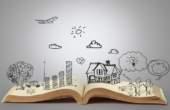
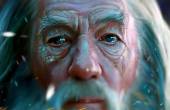
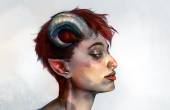
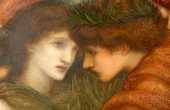

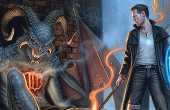
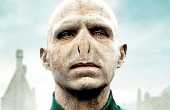

A very detailed discussion, I have a deep love of ‘The Secret Garden’ so found that part in particular really fascinating. Thanks for the perspective Stephanie!